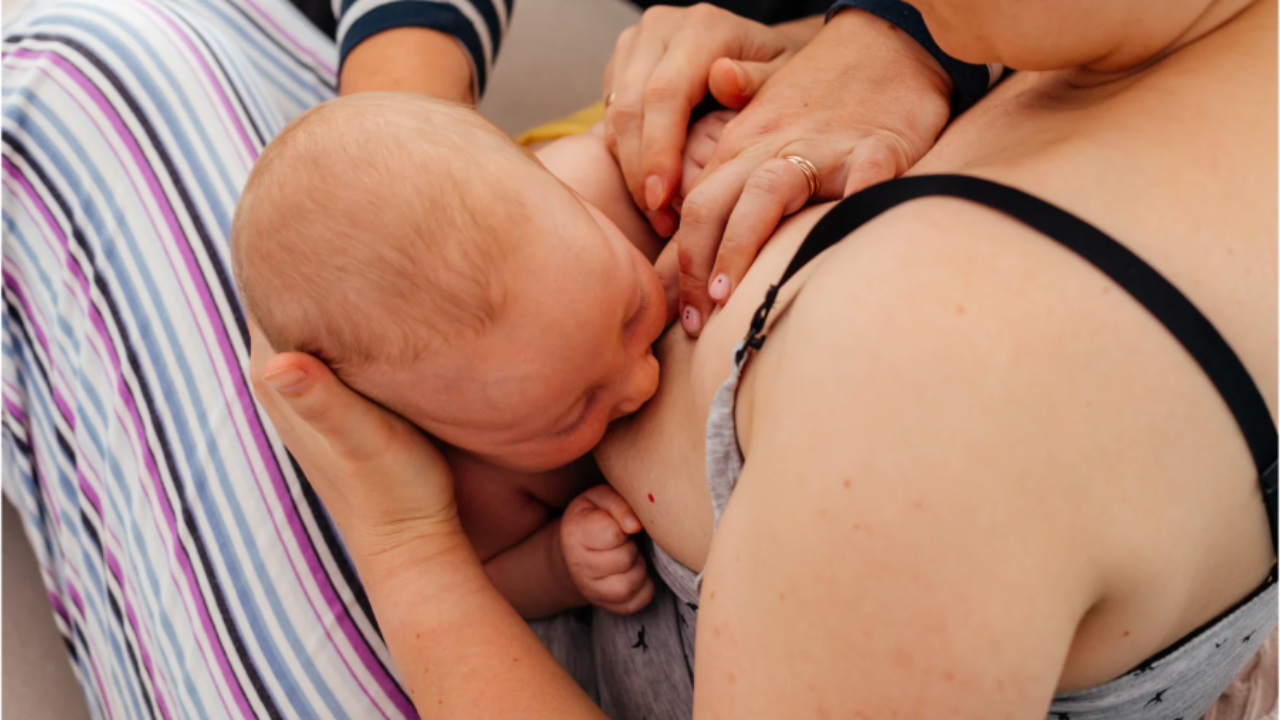Ways to Support Communication from Birth | From the Infant Insights SLP

This blog post was written by the Infant Insights SLP specializing in infants. If you want to know what to expect in many areas of development, join Bloom by Infant Insights today.
From the moment your infant is born, they’re already communicating with you—through cries, coos, and even those wide-eyed gazes. While spoken words may be months away, there’s so much you can do to support early speech development right from the start. As a speech-language pathologist (and mom of three) I’m here to share simple, everyday ways to help your infant build the foundation for strong communication skills.
The Most Important Part
You might feel a little silly narrating your morning coffee routine to your newborn, but guess what? Your infant is soaking it all in. Research shows that babies who hear more words in their early months and years tend to develop stronger language skills later on. So, go ahead—talk, sing, and describe everything you’re doing.
- Use a sing-song voice (also called "infant-directed speech") - your infant loves it!
- Describe the world around them - "This coffee smells yummy! I think I might have two cups this morning!"
- Pause for ‘conversations’ - when your infant coos, respond as if they’re telling you a story. “Oh? You think I should have three?! Great idea, I think so too!”
The more words your infant hears, the more connections their little brain makes!
The Power of Eye Contact & Facial Expressions
Your infant learns about communication long before they can speak, and much of that comes from your face. When you make eye contact, smile, and exaggerate your expressions, your baby starts to understand the back-and-forth of conversations.
- Mimic their sounds - if your infant coos, coo back!
- Make silly faces - your baby is learning how expressions match emotions.
- Watch for responses - they might wiggle, kick, or open their mouth when you talk.
Even if your infant isn’t talking yet, they’re learning the rhythm of communication through these early interactions.
Reading to Your Infant: It’s Never Too Early
It might seem funny to read books to a newborn, but reading is one of the best ways to boost your infant’s language development. The sounds, patterns, and rhythm of language all start to take root as you flip through pages together. This was always a favorite activity of mine during my days at home with my newborns when I wasn’t sure what else to do!
- Choose books with high contrast images - young infants are drawn to bold visuals.
- Read with expression - change your tone to match the story.
- Let your baby ‘participate’ - they may bat at the pages or stare intently.
Even if your infant doesn’t understand the words yet, they’re getting valuable exposure to language!
Sing & Play: Communication Through Fun
Music and play are incredible tools for building early language skills. Singing to your infant introduces them to rhythm and tone, while play encourages turn-taking and interaction.
- Sing nursery rhymes - the repetition helps babies learn patterns.
- Play peekaboo - it teaches social interaction and anticipation.
- Use simple gestures - waving and clapping introduce early communication cues.
Your infant learns best through playful moments, so have fun with it!
Responding to Your Infant’s Cues
Even before words, your infant is communicating. Crying, cooing, babbling, and gestures are all part of early language development. The key is responding to these cues so your baby knows their voice matters.
- Acknowledge their sounds - "Oh, you have so much to say!"
- Narrate their feelings - "I see you’re getting sleepy!"
- Give time for a response - pause and let your baby "talk" back.
When you consistently respond, your infant learns that communication is a two-way street.
When Should My Infant Start Babbling?
Every baby develops at their own pace, but generally:
- 0-3 months - Coos, gurgles, and smiles
- 4-6 months - Babbling begins ("ba-ba" or "da-da")
- 7-9 months - More varied sounds and early attempts at words
- 10-12 months - First words may emerge!
If you’re concerned about your infant’s speech development, early support can make a big difference. Don’t hesitate to reach out to an expert—our team at Infant Insights is here to help!
Final Thoughts: Supporting Your Infant’s Language Growth
Speech and communication begin long before your infant says their first word. By talking, reading, playing, and responding to your baby, you’re laying the foundation for a lifetime of language skills. Keep it natural, have fun, and enjoy these early moments—they’re learning more than you realize!
And if you ever need extra support, Infant Insights is your go-to resource for expert guidance on speech and language development. We’re here to help you navigate every stage of your baby’s journey with confidence!









